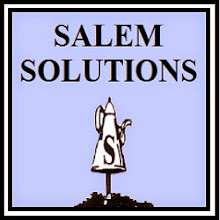Compliments of Yahoo! HotJobs & Robert Half International
Fudging your hire date or your end date for a past job. Inflating your job duties. Adding a few tenths of a point to your grade point average.
It's no big deal when job seekers make these types of adjustments to their resumes, right?
Wrong!
In today's competitive employment market, every applicant is looking for an edge, and padding your resume may seem like the only way to get a leg up on the competition. At the same time, the chances of getting caught can appear to be relatively low.
But exaggerating your skills and qualifications is a risk you don't want to take. For one thing, your deception is easier to uncover than you may realize. In the age of lightning-fast web searches, a hiring manager can research your background and discover the fraudulent information with just a few mouse clicks. A quick call to a previous employer or your alma mater can also reveal the falsified details on your resume. And even a small departure from the truth could eliminate you from consideration for the job.
Here are the areas where applicants most often pad their resumes and the reasons exaggerating won't help you land the job:
•Education
Although a certain degree or certification may be necessary for the position you're targeting, employers usually don't place as much weight on a person's education as they do other aspects of a candidate's background. Adding to your GPA or changing your alma mater to an Ivy League school may, in fact, prove pointless. Hiring managers are much more interested in on-the-job experience and how you've applied skills you learned in the classroom to real-world situations. If you're a recent graduate worried about a sparse work history, highlight your internships, volunteer work, or participation in on-campus clubs, which can serve as substitute for office experience.
•Employment dates
Some job seekers fudge their start or end dates to hide gaps in their work history. But breaks in employment aren't necessarily a significant red flag for hiring managers, especially given the prolonged economic downturn we're currently experiencing. Instead of lengthening your stay with a previous employer, explain what you did during your time off to remain professionally engaged and to keep your skills up-to-date.
•Job duties
Here's an example: A job candidate will claim to have managed a project team when he or she actually co-managed it with a colleague. A better approach is to talk about your bottom-line contributions. A hiring manager may not mind that you shared leadership duties if you note that your combined efforts helped your employer save $200,000 or reduced the time it took to produce a monthly report by two days. Quantify your achievements for maximum impact on a resume.
•The bottom line
If you're still tempted to pad your resume, remember that there are countless stories of professionals who have had their careers ruined by a white lie they made years before. You never know when your deception could turn up or how it could harm your reputation.
Giving your all to your job search doesn't have to mean adjusting your moral compass. Instead, concentrate your efforts on highlighting your skill set appropriately. Then, when you do capture the attention of employers, you can be confident that it's because of your true capabilities.
Tuesday, August 24, 2010
Subscribe to:
Comments (Atom)
